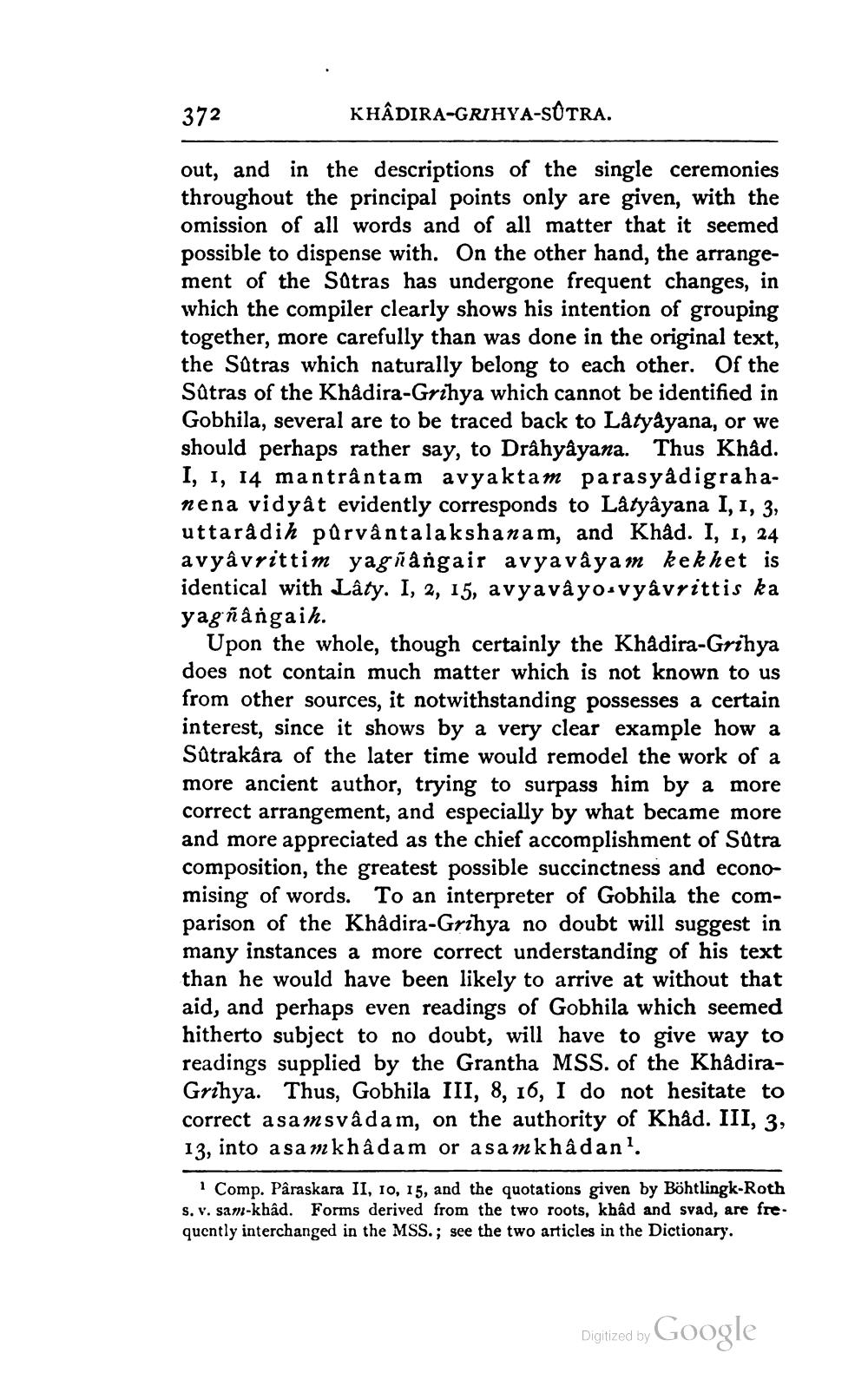________________
KHADIRA-GRIHYA-SÛTRA.
372
out, and in the descriptions of the single ceremonies throughout the principal points only are given, with the omission of all words and of all matter that it seemed possible to dispense with. On the other hand, the arrangement of the Sutras has undergone frequent changes, in which the compiler clearly shows his intention of grouping together, more carefully than was done in the original text, the Sutras which naturally belong to each other. Of the Sutras of the Khâdira-Grihya which cannot be identified in Gobhila, several are to be traced back to Lâtyâyana, or we should perhaps rather say, to Drâhyâyana. Thus Khâd. I, I, 14 mantrântam avyaktam parasyâdigrahanena vidyât evidently corresponds to Lâtyâyana I, 1, 3, uttarâdih pûrvântalakshanam, and Khâd. I, 1, 24 avyâvrittim yagñângair avyavâyam kek het is identical with Lâty. I, 2, 15, avyavâyo vyâvrittis ka yagñângaih.
Upon the whole, though certainly the Khâdira-Grihya does not contain much matter which is not known to us from other sources, it notwithstanding possesses a certain interest, since it shows by a very clear example how a Sûtrakâra of the later time would remodel the work of a more ancient author, trying to surpass him by a more correct arrangement, and especially by what became more and more appreciated as the chief accomplishment of Sûtra composition, the greatest possible succinctness and economising of words. To an interpreter of Gobhila the comparison of the Khâdira-Grihya no doubt will suggest in many instances a more correct understanding of his text than he would have been likely to arrive at without that aid, and perhaps even readings of Gobhila which seemed hitherto subject to no doubt, will have to give way to readings supplied by the Grantha MSS. of the KhâdiraGrihya. Thus, Gobhila III, 8, 16, I do not hesitate to correct asam svâdam, on the authority of Khâd. III, 3, 13, into asam khâdam or asam khâdan1.
1 Comp. Pâraskara II, 10, 15, and the quotations given by Böhtlingk-Roth s. v. sam-khâd. Forms derived from the two roots, khâd and svad, are frequently interchanged in the MSS.; see the two articles in the Dictionary.
Digitized by Google




